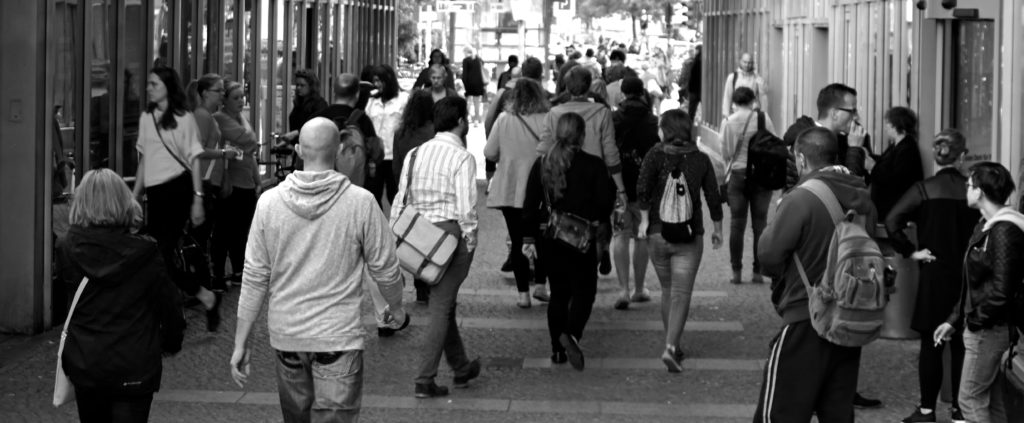Disclaimer: Identity politics is far too broad a topic and too contentious a subject for me to even hope to cover it in so few words, so I’m not going to bother with a complete overview. If you’re after more information, there are a lot of think pieces out on the internet written by far smarter and more established authors than I.
The victory of Donald Trump in November and the Brexit referendum in June have had a profound impact on the state of world political thought, and Australia is no exception to this. As a small Western nation closely allied with the US and UK, the currents that guide them inevitably shape us and we cannot be blind to these movements.
The return of Pauline Hanson’s One Nation should remind us all that we are not exempt from the same systemic inequalities that exist abroad, and that faith in our political system is just as low as it is in other Western nations. Some will point to these developments and proclaim that the world of identity politics is over – that class considerations have triumphed over the elitist ‘tyranny’ of identity. As Waleed Aly said in The Age, ‘Class is back in politics. We ignore it at our peril.’
And to a certain extent, he’s right. Conventional identity politics as espoused by those on the left have been repudiated by a tired and betrayed populace that has seen their wages fall and living standards erode. But is this the fault of identity? The result of placing minority interests at the forefront of political discourse? And does identity naturally fall in opposition to class, such that one must rise as the other falls?
I don’t accept this. The return of class is a readjustment of the ship, yes, but it is not a replacement of it: class and identity are far more intertwined than many give them credit for. Aly is right: class is back, but identity is not going anywhere. Our peril is just as assured by ignoring the co-expression of the two.
What much of this debate seems to stem from is a fundamental misunderstanding of what the term ‘identity politics’ means. In popular liberal parlance, identity politics is taken to be the pushing forward of the politics, by those marginalised in society, against the institutional forces that serve to oppress them – be it patriarchy or white privilege. These identity groups exist as autonomous divided units, based in a single issue and without any real unifying vision, bar protest at their undeserved marginalisation. They do not exist in coalition but as monolithic, divisive groups: the black, the gay, the trans, the immigrant, the Muslim. Such an arrangement forgets that identity, in many cases, is ephemeral: that it changes and distorts depending on the social and economic conditions of the society it arises from.
Shared identities are just as rooted in the social landscape of a nation as they are in their gendered or racial differences; they can change and evolve just as society does. Identity politics can also fall into the pitfalls of forgetting that groups cannot be defined by singular issues: that Catholic Latinos may be just as concerned about abortion rights as they are immigration; that gay women may oppose high taxes and large government. Identities are not monoliths – they are comprised of individuals who have their own political agency, and you cannot merely pay lip service to their background and hope to court their support.
Identity politics are inherently intersectional with class and both must be considered when addressing political concerns: a poor white miner in WA has more in common with an impoverished Aboriginal Australian in the Kimberly region than he does with Gina Rinehart, and she is more like Patty Mills than either would care to admit. White privilege is real, but it is more complicated than ‘whites have it easier than [insert: gender/race/etc.], so don’t complain about your lot in life.’
Identity politics is confluent in all walks of society: the economic conditions of the white labourer is just as important to shaping his or her views as the racial lens of the Indigenous Australian. By limiting identity to a focus on racial or gendered grounds we arbitrarily forget the heavy importance class has on defining and dividing us.
To dismiss identity politics entirely, as some choose to do, is a step too far. Contemporary Australia is already haunted by ghosts, both past and present – the historic horrors of the White Australia policy and the current abuse of Asylum Seekers are amongst our other crimes. We cannot forget the large swaths of the Australian population that are currently unable to marry or are subject to blatant discrimination and harassment; their voices must not be allowed to fade from view. But this recognition cannot come at the expense of the class struggle that lies beneath the surface of our society.
We acknowledge the Ngunnawal and Ngambri people, who are the Traditional Custodians of the land on which Woroni, Woroni Radio and Woroni TV are created, edited, published, printed and distributed. We pay our respects to Elders past and present. We acknowledge that the name Woroni was taken from the Wadi Wadi Nation without permission, and we are striving to do better for future reconciliation.
